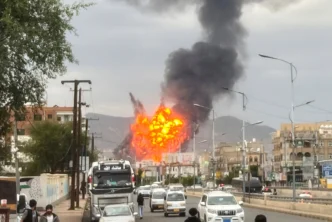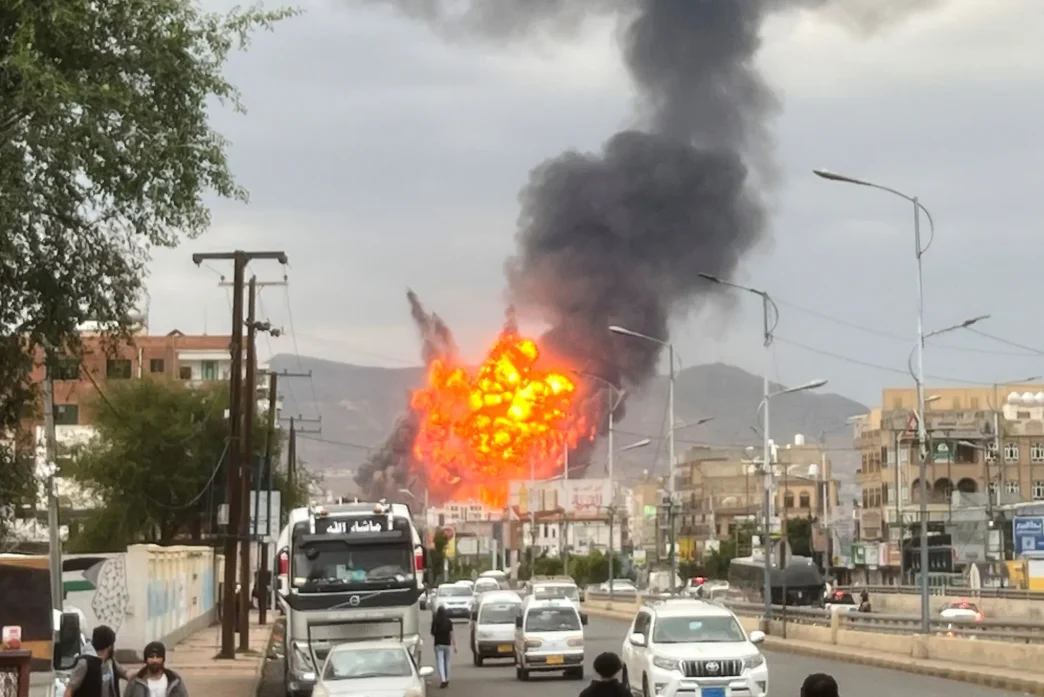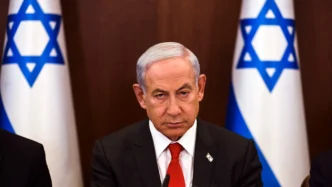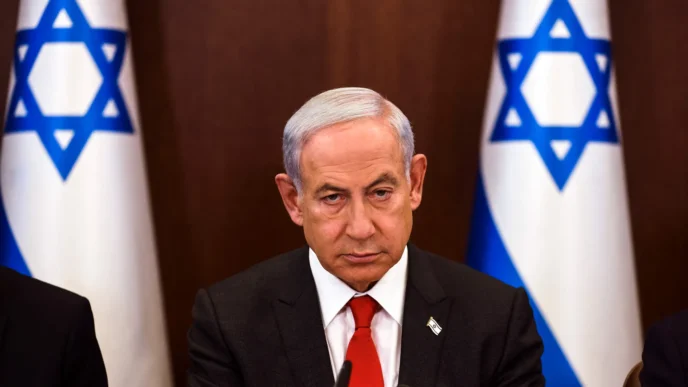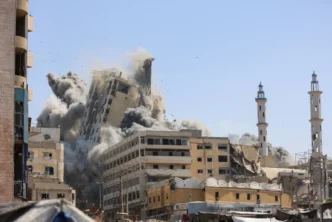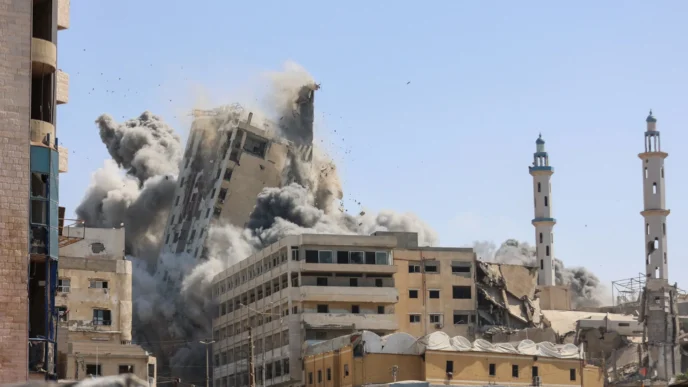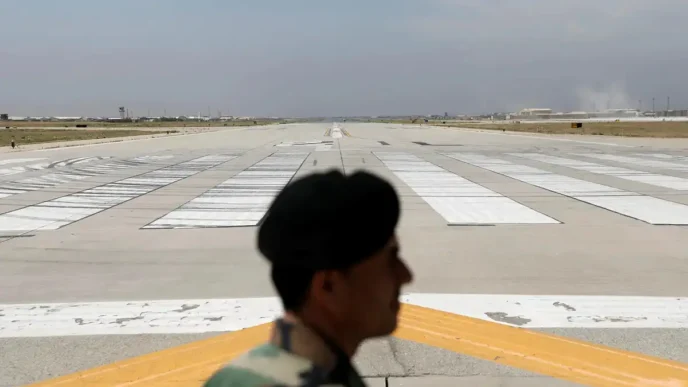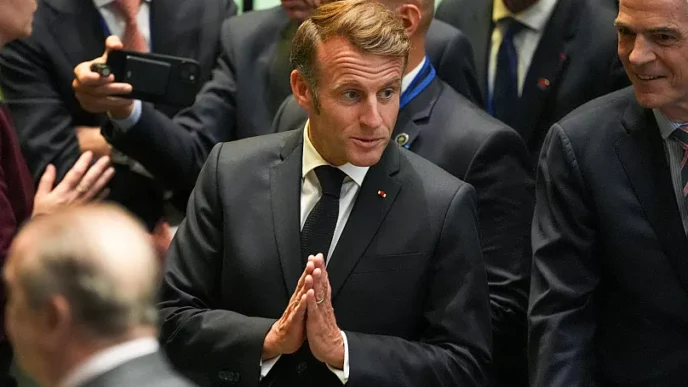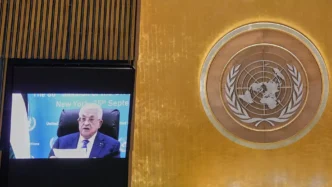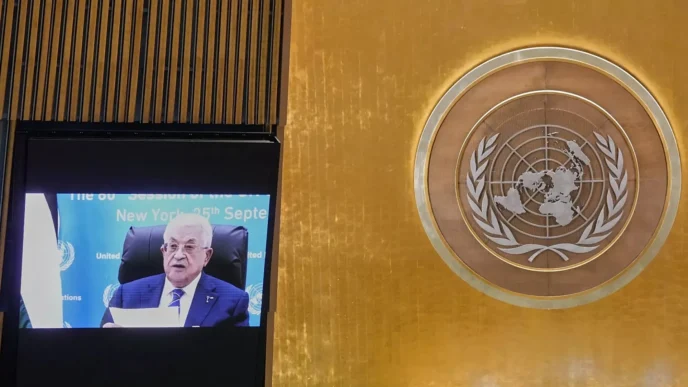The Middle East was rocked this week by escalating violence as Israeli airstrikes in Yemen killed at least 35 people, according to regional officials, amid ongoing cross-border exchanges of fire with the Houthi movement. The latest escalation underscores the growing risk that localized clashes could spiral into a wider regional conflict.
The Strike
Military sources confirmed that Israeli forces launched multiple air raids on Houthi-controlled areas in northern Yemen late Tuesday. The strikes reportedly targeted weapons depots, drone facilities, and command centers linked to Houthi forces, who have intensified cross-border attacks against Israel in recent weeks.
- Casualties: Local health authorities reported 35 killed, including both fighters and civilians caught in the bombardment.
- Infrastructure Damage: Several residential neighborhoods were also damaged, raising humanitarian concerns.
- Ongoing Clashes: The strikes came in direct response to Houthi missile and drone launches targeting southern Israel and Red Sea shipping lanes.
The Israeli Defense Forces (IDF) said the operation was intended to “neutralize immediate threats”, citing a pattern of escalating attacks by the Iran-backed Houthis.
Houthi Retaliation and Regional Tensions
Houthi officials vowed retaliation, declaring that the Israeli strikes would “not go unanswered.” In recent weeks, the group has intensified its role in broader regional hostilities, launching:
- Drone and missile barrages at Israeli territory.
- Strikes against Red Sea shipping lanes, targeting vessels linked to Israeli or Western interests.
- Symbolic declarations of solidarity with Palestinian groups in Gaza.
The clashes illustrate how the Yemeni conflict, once largely contained to a civil war, has now been drawn into the wider geopolitical struggle involving Israel, Iran, and Gulf states.
Humanitarian Fallout
The strikes also worsen Yemen’s already dire humanitarian crisis. After nearly a decade of conflict, Yemen remains one of the world’s most fragile states:
- Civilian Casualties: With 35 killed in this latest incident, aid groups are warning of more displacement and casualties if fighting intensifies.
- Infrastructure Strain: Electricity, health care, and supply chains remain critically weakened, making recovery from airstrikes nearly impossible.
- Humanitarian Aid: International agencies fear renewed fighting could limit access to aid deliveries, further compounding hunger and medical shortages.
The UN called for immediate restraint, warning that escalation risks pushing Yemen into “an even deeper catastrophe.”
Israel’s Security Justification
Israel has defended its operations in Yemen as preventive strikes aimed at neutralizing a growing threat.
- Officials argue that the Houthis are part of a broader Iranian proxy network, working alongside Hezbollah in Lebanon and Hamas in Gaza to challenge Israel’s security.
- Military analysts say the Houthis’ long-range drones and missiles represent an increasing danger, both to Israeli population centers and to commercial shipping routes vital for global trade.
- The IDF insists it is targeting military infrastructure, not civilians, though international observers have urged greater caution to minimize collateral damage.
Regional Implications
The exchange of fire between Israel and the Houthis is more than a bilateral conflict; it highlights the wider volatility of the Middle East:
- Red Sea Security – Attacks on shipping threaten one of the world’s busiest trade routes, raising global economic stakes.
- Iran’s Role – As the Houthis’ primary backer, Iran’s involvement risks pulling the conflict into sharper confrontation with Israel.
- Gulf States’ Dilemma – Countries like Saudi Arabia and the UAE, which have had uneasy truces with the Houthis, now face new pressure to reassess their regional strategies.
- US and International Concerns – Washington has condemned the Houthi attacks and expressed support for Israel’s right to self-defense, while also urging de-escalation to avoid destabilizing global trade and energy supplies.
What Comes Next
The latest escalation raises difficult questions about how far the conflict will go:
- Will Houthis Expand Attacks? – Observers warn that the group could step up drone and missile strikes, potentially targeting Israeli allies in the Gulf.
- Will Israel Escalate Further? – More airstrikes remain possible if rocket fire continues, potentially deepening Yemen’s crisis.
- Diplomatic Efforts – Quiet talks involving Oman, the UN, and other mediators are ongoing, but chances for immediate de-escalation appear slim.
Conclusion
The killing of 35 people in Israeli airstrikes on Yemen represents a dangerous new phase in the region’s conflicts, linking Yemen’s long-running war with broader Middle East flashpoints. While Israel frames the strikes as necessary self-defense, the humanitarian toll and potential for regional escalation are raising alarm among international observers.
As clashes continue, the Middle East faces the risk of a broader warfront stretching from Gaza and Lebanon to the Red Sea, with consequences that could reverberate far beyond the region.


